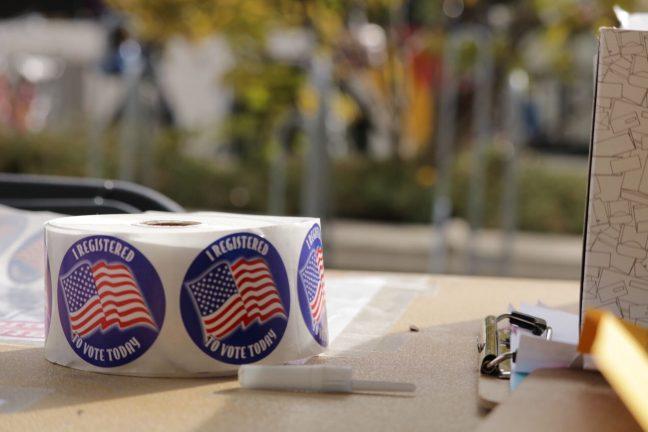A package of legislation currently circulating for co-sponsors in Wisconsin’s state legislature would make it harder for voters to cast their ballots, especially absentee ballots, Madison Mayor Satya Rhodes-Conway said in a statement.
Sen. Duey Stroebel, R-Saukville, proposed six bills that would change several administrative rules and regulations for Wisconsin voters and clerks. They are yet to be officially introduced, according to Rhodes-Conway.
The circulating legislation places new restrictions on obtaining and returning absentee ballots. LRB-1537 requires each individual voter to designate in writing one person who is a registered voter to deliver their absentee ballot.
The bill also prohibits a person from delivering a marked absentee ballot to a municipal clerk or polling place unless the person is a member of the voter’s immediate family or legal guardian.
In an email to The Badger Herald, University of Wisconsin political science professor and director of the Elections Research Center Barry Burden said nearly all of the circulating bills would make absentee voting more difficult.
“Although some ambiguous aspects of the law related to absentee voting should probably be clarified through legislation, the bills circulated this week go far beyond that and are not all necessary to protect the integrity of Wisconsin elections,” Burden said. “The bills largely mimic the issues raised in the failed lawsuits filed after the [Presidential] election that hoped to overturn the results.”
Another proposed bill, LRB-1935, adds additional requirements for indefinitely confined voters.
Current state law allows a voter who is indefinitely confined because of age, physical illness, infirmity or disability to automatically receive an absentee ballot every election.
The circulating proposal would require voters under 65 to provide a statement signed by a health care professional to prove their indefinitely confined status. Voters would also be prohibited from citing a pandemic or disease outbreak as their reason to register as indefinitely confined.
These restrictions on indefinitely confined voters come after hundreds of thousands of Wisconsin voters used the provision to vote in the 2020 presidential election, according to WORT.
Professor Emeritus of Political Science and Public Affairs John Witte said the proposed package of bills has partisan motivations.
“There is one relevant fact about all laws and administrative rules concerning partisan elections — Republicans want to restrict voters and Democrats want to expand the voting pool,” Witte said. “Arguments from both sides are clothed in ethical principles, but that is nonsense — it is straight politics. I do not view that as being bad. Political party competition over elections is the very heart of American democracy.”


